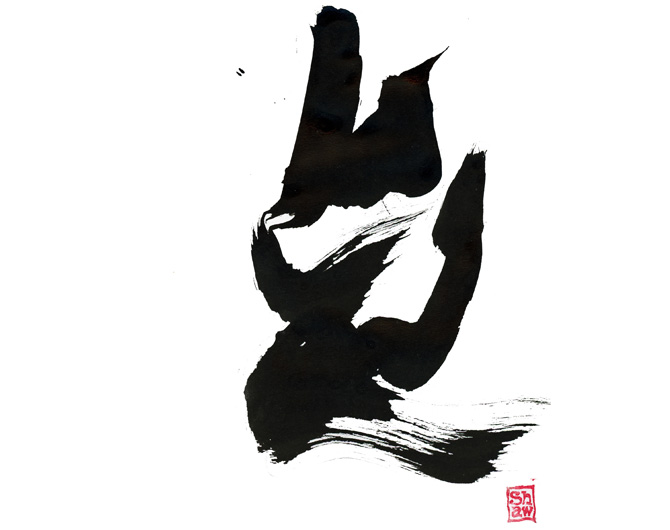The Scott Shaw Blog
Be Positive

Be Positive

The purpose of Zen is to obtain enlightenment. It is as simple as that. End of story. Yet, throughout the centuries, people have placed all kinds of definitions, schools, practices, and products that are attributed to Zen. Are any of this THINGS a pathway to enlightenment? If they are not, then they are not Zen.
Since the birth of Zen, that evolved from the teachings of Siddhartha Gautama, the Sakyamuni Buddha, enlightenment has been the primary focus of this teaching. Yet, for most, it has become an unachievable goal. Like the pot of gold at the end of the rainbow, it is so close at hand but never obtainable.
The main problem(s) that arises in the pursuit of enlightenment are based in concept. For the few people who actually do choose to devote their life to encountering enlightenment, they each follow a path defined by concept. They are taught the teachings of their teacher and their school. They read the scriptures that have been laid down throughout the centuries. Though all of these things may be understood to be a guide, by their very nature they go against the true understanding of Zen, which is, we all are already enlightened—it is in our ultimate nature. It is only for us to peel back the layers of delusion and illusion for us to perceive this fact. Yet, every word and every teaching, as good intentioned as they may be, do the exact opposite of this. Instead, they add more pieces to the puzzle and make the end goal that much harder to obtain.
There are many facets to Zen that come to the mind of the zealot and the researcher: Zazen or meditation, Dōkyō or reading scriptures, Samu or everyday work done with a spiritual focus, Koan or piecing through the veil and finding the meaning hidden beneath abstract word constructions, and Dentō the passing of enlightenment from teacher to disciple. These, and many more practices, all define the pathway of Zen. But, they are all just THINGS. And things, by their very nature, keep one from encountering enlightenment. Meaning, hand-in-hand with the essence of Zen, there have intentional roadblocks put up to keep one from obtaining that which is the most easy to obtain if one simply lets go of all of the materializations of the practices.
In Zen, the understanding of, “Kensho,” is often explained to be the pathway to nirvana. Kensho means, “Opening,” or better explained opening up to the true nature of the Self—that place that is enlightenment. Though some Zen Buddhist sects teach that enlightenment must come via a gradual process following an ever-expanding process of steps and obstacles, this is actually a misunderstanding of the entire truth of Zen. For even if one walks down the road towards finding enlightenment, it is only in that moment when nirvana overcomes the individual where all time and practice is lost to the realms of pure understanding. For once one embraces enlightenment, there is no longer any frame of reference for the pathway that got the individual to that point. All simply is.
For those who walk the pathway of Zen, yes, they are embracing a higher calling. But, just as all inner truths and deep wisdom are hidden behind the veil of illusion, as long as one prefers walking the path to actually obtaining the end goal, there will forever be the need for texts, scriptures, teachers, and schools, that are designed to guide the devotee. But, the truth of the truth of Zen is, that its pinnacle needs no teacher or teaching to obtain. All one has to do is to embrace the pure essence of Zen, located at the root of its teaching and instantly all the schooled stuff become unnecessary. For it is at the point, which by its very definition is the simplest to obtain, enlightenment is known.
If you wish to know about Zen, you can read the books. There are a lot of them out there detailing the understandings of this philosophy. If you want to be called a practitioner of Zen you can go to a temple and be initiated into the sect by a monk. But, if you want to live Zen, then discard all of the physical manifestation and embrace enlightenment, for that is the only true heart of Zen.